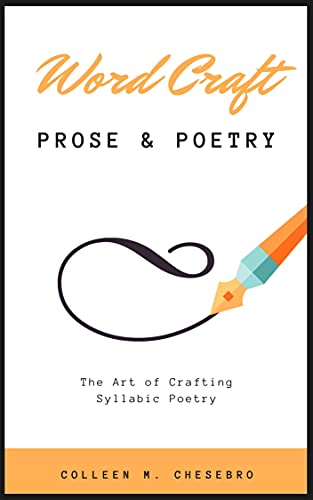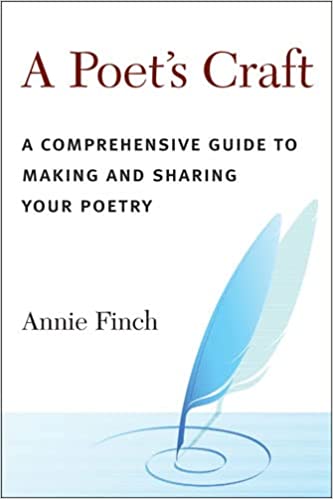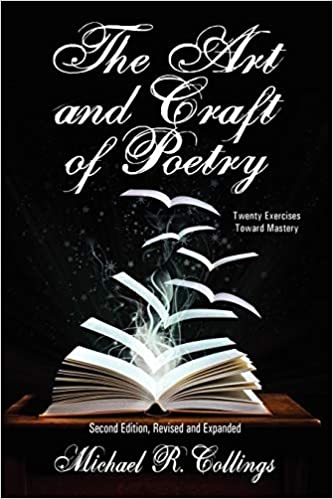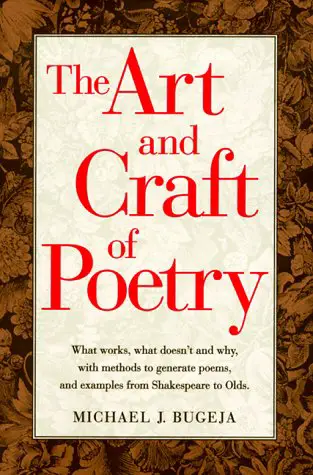Writing a Poetry Book

Poetry has the power to evoke deep emotions and paint vivid images with just a few words.
It is an art form that has been revered for centuries and continues to captivate audiences today.
However, writing a poetry book can seem daunting, especially for beginners. But with these 9 actionable tips, you can turn your poetic musings into a published masterpiece.
So, grab your pen and paper and get ready to unleash your inner poet – the journey to writing a poetry book starts now!
Table of Contents
1. Finding Poetic Inspiration
Getting motivated to write a poetry collection is the first step in the process.
When writing poetry, it’s crucial to draw from one’s own life experiences and point of view in order to create something genuine and moving.
Inspiration can come from anywhere, including one’s own life, the natural world, or even the works of other poets.
Word Craft
One excellent resource for finding poetic inspiration is the book, Word Craft: Prose & Poetry by Colleen M. Chesbro.

This book is a complete guide to writing syllabic poetry, such as haiku, tanka, haibun, renga, and cinquain.
It delves into the art of finding poetic inspiration and exploring ideas, giving you the opportunity to tap into your sixth sense and discover your interests.
2. Understanding the Fundamentals of Poetry
Knowing the fundamentals of poetry is crucial after you’ve found inspiration.
Poetry involves more than just putting words together; it also involves carefully selecting elements like metaphor, rhyme, syntax, and more to create meaning and rhythm.
A Poet’s Craft
A Poet’s Craft: A Comprehensive Guide to Making and Sharing Your Poetry by Annie Finch provides a thorough explanation of these components.
This manual delves deeply into the various components of poetry, with sections on metaphor, rhyme, syntax, and other topics.

Make poetry your own by unlocking its power. With A Poet’s Craft, you can learn the fundamentals of writing meaningful, beautiful poetry from the depths of your soul.
This comprehensive guide will give you the skills and confidence to express yourself through words like never before, from discovering your unique style to sharing it with others.
3. Unity and Coherence in Writing:
Writing effective poetry requires a certain degree of coherence and unity. The concept of unity describes how all the components of a poem come together to form a single, harmonious whole.
This indicates that the poem’s subject, tone, imagery, and structure all work together to convey a distinct and unified message.
Contrarily, coherence refers to the links between various sections of the poem.
It denotes that the poem’s ideas and images are logically related and flow naturally from one to the next, making it simple for the reader to follow the poem’s argument or narrative.
A poem has a sense of order and purpose thanks to unity and coherence, which together make it simpler for the reader to comprehend and enjoy its meaning.
4. Improving Writing Readability:
Improving the readability of poetry writing entails making the poem accessible and understandable to the reader.
This can be accomplished by using clear and concise language, structuring the poem logically and clearly, and avoiding complex literary devices that may confuse the reader.
Furthermore, writers can use rhyme and meter to create a musical quality in the poem, which can enhance its appeal.
To improve readability even further, writers should be mindful of their word choice and ensure that each word serves a purpose in the poem.
Writers can create poems that are not only beautiful but also accessible to a wider audience by focusing on these key elements.
5. Recommended books for poetry writing
There are two books that stand out for learning about poetry writing:
1. The Art and Craft of Poetry

Bring poetry into your life with The Art and Craft of Poetry: Twenty Exercises Toward Mastery (Borgo Literary Guides).
An invaluable resource for aspiring poets, this guide provides readers with the tools they need to hone their creative writing skills and take their poems to the next level.
With hands-on experiences, exercises, helpful tips and advice on technique, this guide offers an effective program that helps writers grow in confidence as they learn.
2. The Art and Craft of Poetry

The Art and Craft of Poetry by Michael Bugeja is the perfect book for unlocking your poetic potential.
Through practice exercises and helpful guidance, this book will teach you how to break down barriers and discover hidden depths in your work.
With step-by-step instructions for writing and revising poems, it’s never been easier to hone your skills as a poet.
Key Takeaway: Both of these books provide comprehensive poetry writing guides as well as practical exercises to help you improve your craft.
6. The key elements of poetry writing
The key elements of poetry writing include:
- Imagery: The use of vivid and sensory language to paint a picture in the reader’s mind.
- Sound: The use of rhythm, rhyme, and other sound devices to create musicality and atmosphere in the poem.
- Emotion: The expression of feelings and emotions through the poem’s language and tone.
- Theme: The central idea or message that the poem explores.
- Form: The arrangement of words and lines in the poem, can affect the poem’s rhythm and meaning.
Each of these elements contributes to the overall impact of the poem, and the way they are used can greatly influence the poem’s tone, mood, and effectiveness.
When writing a poem, it’s important to consider how each of these elements can be used to create the desired effect, whether it’s to evoke a particular emotion, convey a specific message, or simply entertain and engage the reader.
Whether you are a beginner or an experienced poet, mastering the key elements of poetry writing is crucial to creating successful and memorable poems.
7. Poetic exercises for strengthening your craft
Poetic exercises are a valuable tool for enhancing one’s poetic craft.
By practising and experimenting with various writing techniques, you can develop your skills and discover new ways to express yourself through poetry.
Here are some writing exercises you can try:
- Set a timer for a specified amount of time, and then write without stopping whatever comes to mind during that time. This exercise can assist you in tapping into your subconscious and discovering new poem ideas.
- Begin by choosing a source text, such as a newspaper article, novel, or speech. Then, select words and phrases that resonate with you from the text and use them as the basis for a poem.
- Villanelle: Compose a poem using the traditional villanelle structure, which consists of five tercets followed by a quatrain. Each stanza’s first and third lines are repeated in an alternating pattern.
- Write a poem in which the words and letters form a visual representation of the poem’s topic.
- Write a poem in response to a visual work of art such as a painting, sculpture, or photograph. Describe the work of art and its impact on you, and let your imagination run wild.
Key Takeaway: These exercises can assist you in developing your skills and unleashing your imagination. They are intended to be entertaining and adaptable, so feel free to modify them to suit your needs and preferences. Best wishes on your writing!
8. Poetry writing tips for beginners
If you’re a beginner and want to start writing poetry, there are a number of tips and resources that can help you get started.
According to an article written on the Master Class website, there are 11 Rules for Poetry Writing Beginners:
- Read a lot of poetry: Start reading poetry if you want to write poetry.
- Listen to live poetry recitations: Poetry can be enjoyed without analyzing poetic devices.
- Start small: Writing poetry can start with a simple rhyming poem.
- Don’t obsess over your first line: Don’t give up if you can’t find the perfect poem opener. Write and return to the first line later.
- Embrace tools: Use a thesaurus or a rhyming dictionary to finish a poem. The professionals use them too.
- Enhance the poetic form with literary devices: Poetry, like all other forms of writing, benefits from literary devices. Use them!
- Try telling a story with your poem: just like novels, short stories, or essays, you can tell stories in a poem.
- Express big ideas: If you choose your words carefully, you can express a core philosophy in poetry.
- Paint with words: Poets use word choice to create mental images for readers.
- Familiarize yourself with myriad forms of poetry: Each type of poetry has its own set of criteria, rhyming scheme, number of lines, meter, subject matter, etc. Learn them.
- Connect with other poets: Poetry readings and writing workshops bring poets together and they are a great source for feedback and constructive critique.
Key Takeaway: To further improve your poetry writing, it may be helpful to read famous poems for inspiration, revise your writing unlimited times, and keep practising.
9. Tips and Tricks to Keep Your Writing Process Going
- Write and Publish Your Writing:
The first step to becoming a better writer is to write and then publish your writing, whether it be on a blog, in a book, or shared with a close friend. According to [1], the only way to improve is by practising writing and getting feedback on it. - Celebrate Small Wins:
To help change your feelings towards writing, psychologist and writer Mary Pipher suggests ending your writing for the day on a high note. This way, you will be more likely to feel good about returning to it the next day. Monitoring and celebrating small wins can also help to boost your motivation and enthusiasm for writing. - Maintain a Consistent Writing Schedule:
Making writing a regular part of your routine can help you stay motivated and on track. Consider setting aside specific times each day or week to write, and treat these writing sessions as appointments that you can’t miss. - Surround Yourself with Writing Inspiration:
Fill your environment with inspiration and things that make you excited to write. This could be anything from quotes, images, or music that gets your creative juices flowing. - Take Breaks:
Writing can be mentally and physically draining, so it’s important to take breaks and give yourself time to recharge. Take a walk, read a book, or engage in an activity that you enjoy. - Seek Feedback:
Receiving feedback from others can be incredibly valuable for improving your writing. Share your work with friends, family, or writing groups, and be open to constructive criticism. - Keep Things Organized:
Organization can also play a big role in keeping your writing process on track. Consider using tools such as outlines, bullet points, or mind maps to plan out your writing before you begin.
Publishing Your Book
There are several approaches you can take if you want to publish your poetry book:
- Entering poetry contests, which are offered by many small presses and university presses,
- Publishing a chapbook is often a good first step for poets because it serves as a sample of their potential and can increase their chances of eventually publishing a full-length collection.
- Another option is to approach publishing houses or big publishers, but these publishers mostly publish poets who are already well-known in the poetry community, and even then, the financial compensation for the publication of their poetry book is minimal [3].
- If everything else fails, consider self-publishing. That’s what I did. Check out my Amazon author page.
Key Takeaway: Before deciding how to publish your poetry book, it is critical to research and comprehends each option. This can assist you in making the best decision for your work and your goals as a poet.
Final Thoughts on Writing a Poetry Book
Finally, writing a poetry book is both a beautiful and difficult journey. You can write meaningful, expressive, and memorable poems if you have the right mindset, inspiration, and techniques.
You can lay a solid foundation for success as a beginner poet by following the nine actionable tips outlined in this article.
Writing poetry, whether for personal fulfilment or public recognition, is a timeless and rewarding pursuit that can bring joy and fulfilment to your life.
So embrace your creative spirit, immerse yourself in your imagination, and begin writing your poetry book today!
References:
- “How to Write Poetry: 11 Rules for Poetry Writing Beginners.” MasterClass, www.masterclass.com/articles/how-to-write-poetry.
- “8 Poetry Exercises to Help Your Creativity Flow.” Read Poetry, Read Poetry, 8 Feb. 2023, https://www.readpoetry.com/8-poetry-exercises-to-help-your-creativity-flow/.
- “How to Self-Publish a Poetry Book.” Gatekeeper Press. N.p., n.d. Web. 09 Feb. 2023. https://gatekeeperpress.com/how-to-self-publish-a-poetry-book/




Leave a Reply